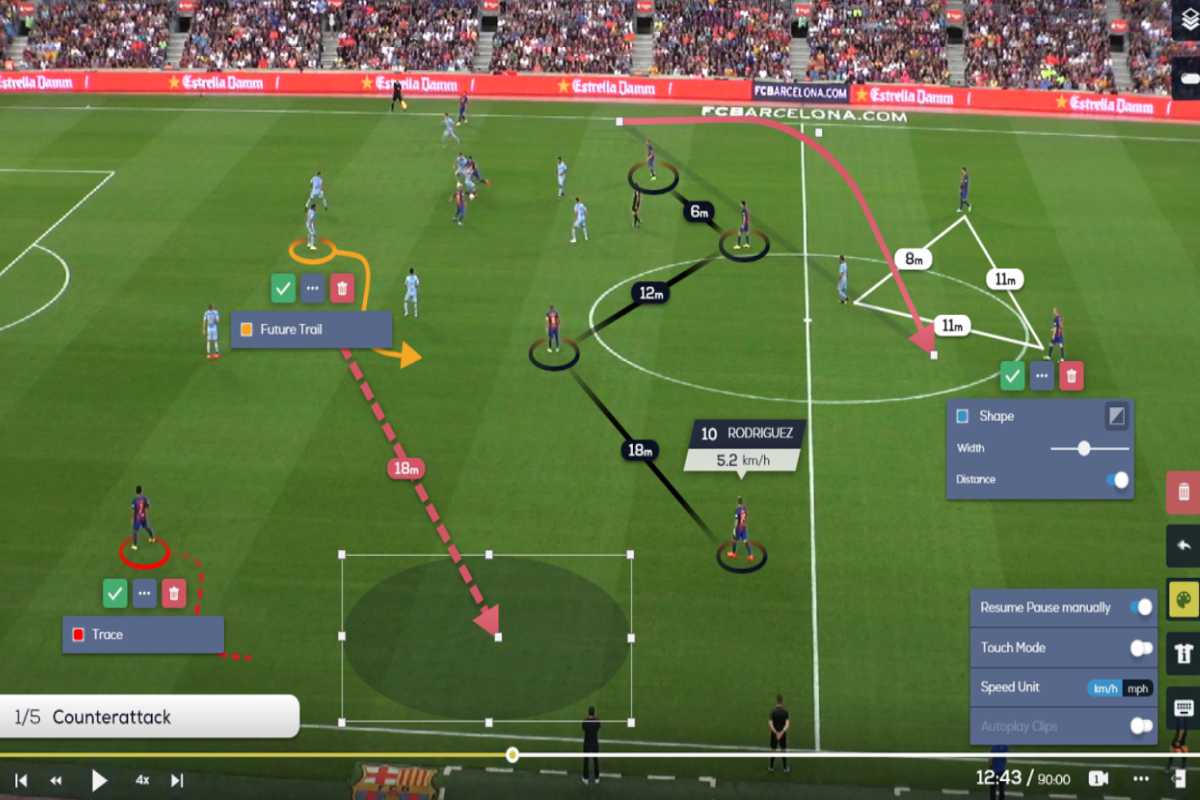
Sports analytics has revolutionized the way coaches and athletes refine strategies and
improve performance. One of the cornerstone technologies enabling this transformation
is video annotation. This technique involves labeling video content to identify and
evaluate elements of gameplay or practice that are critical for athlete and team
advancement. The singular focus on a video annotation tool rather than multiple tools
ensures a streamlined, cohesive approach, enhancing both the accuracy and utility of
the data collected.
Understanding Video Annotation in Sports
Video annotation allows teams to break down their performance into manageable,
observable events, which can then be studied in detail. This process can vary
significantly depending on the sport and the level at which it is performed. For instance,
in basketball, video annotation might focus on player positioning, plays executed, and
opponent formations. The data collected goes beyond mere observation, providing
quantitative measures that can lead to qualitative improvements.
The primary advantage of using a dedicated video annotation tool is its ability to
customize features and functionalities to suit specific needs. Whether it’s tracking the
speed of a pitch in baseball, the formation of players in football, or the accuracy of
serves in tennis, these tools allow for detailed analyses that are both sport-specific and
player-specific.
Features of an Effective Annotation Tool
A robust video annotation tool should offer a variety of features that facilitate easy and
efficient analysis. Key features include:
Tagging and Labeling: Ability to tag specific moments in the video for easy
reference. This can include actions like goals, fouls, and standout plays. The
granularity of the tagging process directly influences the effectiveness of the
subsequent analysis.
Timeline Analysis: Provides a chronological timeline view that helps in
understanding the sequence of play and identifying patterns over time.
Collaborative Capabilities: Should enable multiple analysts or coaches to work
on the same video footage simultaneously, allowing for a multi-dimensional
analysis of the performance.
Integration with Other Tools: While the focus is on a singular annotation tool, it
should be capable of integrating seamlessly with other data analysis tools or
existing technological ecosystems to enhance the depth of analysis.
Customization: The tool should be highly customizable to adapt to different
sports and their specific requirements. This includes setting up custom
categories, statistics, and data points relevant to the sport or even a particular
coaching focus.
Benefits of Video Annotation in Sports
The strategic use of video annotation tools offers numerous benefits:
- Enhanced Performance Insights: Detailed analytics help in understanding not just
the outcomes, but also the processes leading to those outcomes. This can
involve analyses of player movements, team formations, and tactical
approaches. - Improved Coaching Methods: Coaches can use insights gained from video
annotation to tailor training sessions to address specific weaknesses identified
during game play. - Player Development: Individual players can benefit from annotated videos that
highlight their performances in various situations. This personalized feedback is
crucial for developmental purposes. - Injury Prevention and Management: By studying the mechanics of player
movements that lead to injuries, teams can better design conditioning and
training programs to prevent such incidents. - Scouting and Recruitment: Annotated videos can assist scouts in assessing
potential recruits more effectively, using detailed analytics to evaluate their skills
and fit with the team’s strategies.
Real-World Applications and Success Stories
Many professional teams across sports like soccer, basketball, and American football
utilize video annotation to gain a competitive edge. For example, NBA teams use
sophisticated video annotation tools to dissect every play of every game, studying
opponent tendencies and player efficiencies to refine defensive and offensive strategies.
Similarly, in soccer, teams analyze formations and player movements during different
phases of the game to enhance tactical executions and in-game adjustments. The use
of a single, powerful video annotation tool makes these analyses not only possible but
also impactful..
Conclusion
In conclusion, the adoption of a comprehensive video annotation tool in sports analytics
is not just about keeping up with technological advancements—it’s about actively
leveraging these tools to enhance team performance and strategic planning. As the
scope of sports analytics expands, the capabilities of these tools will continue to evolve,
offering deeper insights and more actionable data to coaches and athletes aiming for
the highest levels of achievement. This focus on refined, precise analytical practices is
what will define the next generation of sporting excellence
